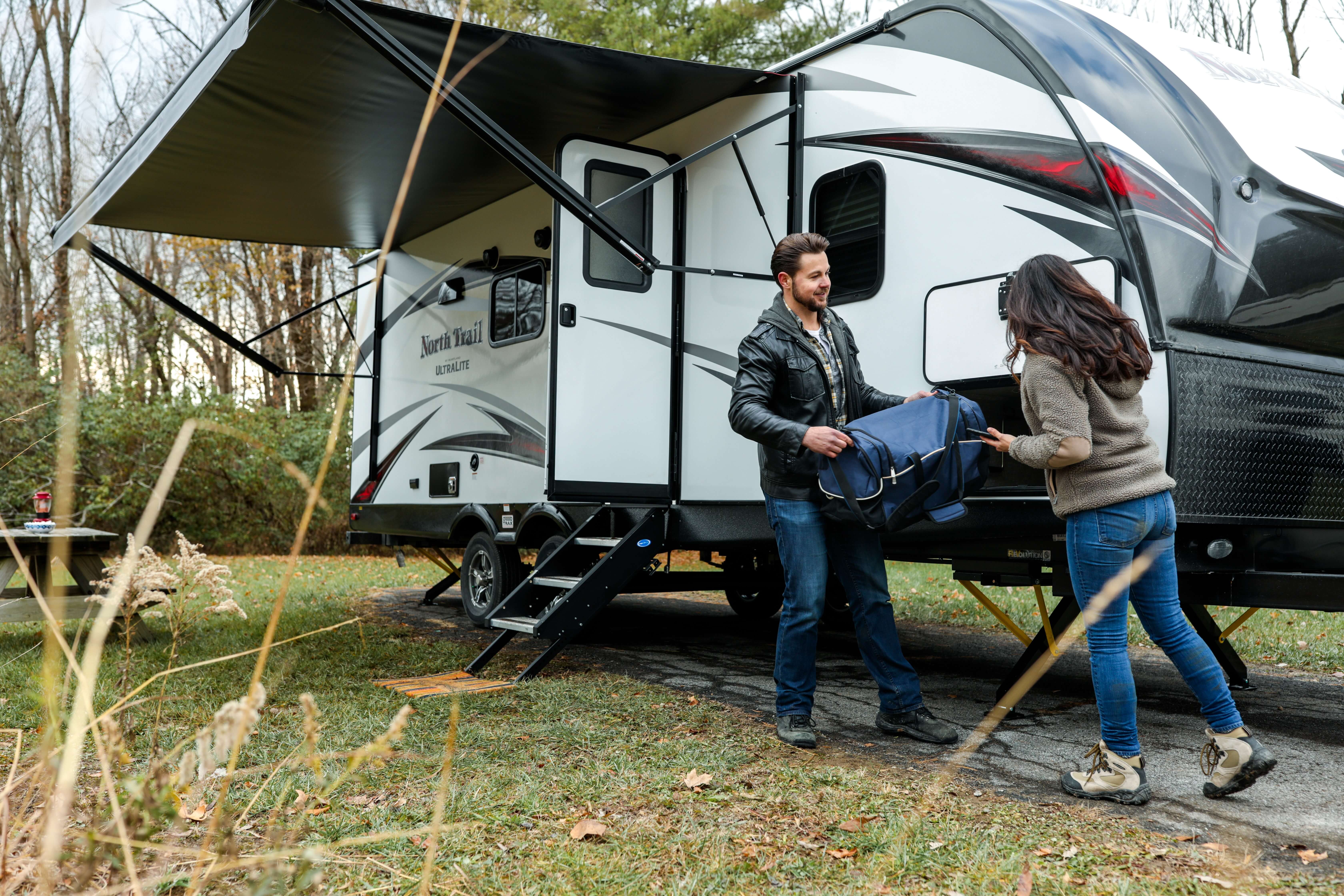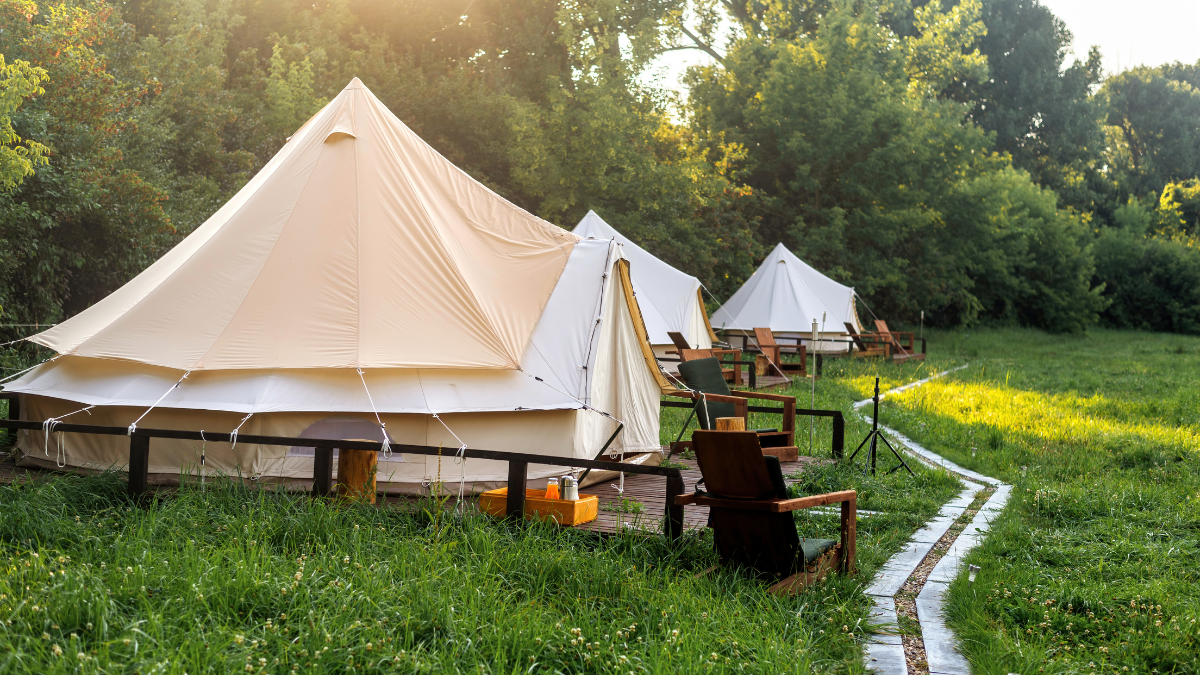As a campground or RV park manager, it is important to enforce rules and regulations on your site(s) to ensure the safety of all campers and employees.
But some park rules can unintentionally deter campers from staying or returning — and while they may still be worth enforcing, it’s smart to understand why campers don’t like them so you can consider a few ways to modify your policies accordingly.
With the right knowledge of your campers’ preferences and honest feedback from your guests, you can provide everyone with a better experience.
Here are five common campground or RV park management rules that guests often dislike, with a few tips for pleasing your campers without taking away all the rules.
1. The 10-Year Law
RV park owners reserve the right to deny a camper entry into their campground if their RV is older than 10 years old. It’s actually quite common practice in states like Arizona and Florida, but parks from Maine to California enforce this rule.
You know all too well why: older RVs can leak or cause damage to your site, are a real eyesore, and can even threaten the safety of your RV park community. But despite all the reasons for upholding a 10-year RV policy, the vast majority of campers don’t like it. In one survey that asked 500 RVers, 88% did not approve of the rule.
When asking your prospective campers for pictures of their RV, remember to not exclusively judge a book by its cover. Vintage RVs are becoming popular and trendy — and many RVers are very passionate about the upkeep of their retro relics. Consider sending a short, pre-written questionnaire to prospective campers to confirm the condition of their RV or having them sign a condition validation statement.
2. Charging for Additional People
Some RV parks or campgrounds charge based on the size of the space — others charge by the headcount of guests staying. More often than not, the latter comes with opposition.
Guests wonder why it should matter who is staying inside of their RV. They are paying for the spot and using their own amenities inside their space. It’s not like a hotel where they’re paying by the bed. This is a topic of frustration for many campers who are looking to enjoy a nice getaway with a group of friends or family.
To avoid this deterrent, consider charging appropriately for the square footage or type of plot and remove the headcount caveat altogether. If you prefer the additional person policy, be very clear upfront about your RV rules so no one feels misled prior to arrival, should a spontaneous friend or family member decide to join on their travels.
3. Dog Breed Restrictions
One thing that campers love about staying at an RV park as opposed to a hotel is the ability to bring their favorite four-legged friends on their adventures. However, some RV parks are not all-inclusive to every breed of dog.
Breeds linked with aggressive behavior such as Akitas, Boxers, Bulldogs, Chows, Dobermans, Huskies, Malamutes, Mastiffs, and Shepherds are routinely placed on park “banned” lists. Some campgrounds also enforce dog weight restrictions, which can deter certain RVers from staying.
Instead of blanket-banning “aggressive” or “big” dog breeds, consider implementing restrictions. For instance, RV renters with these breeds may only be permitted to stay in a certain area of the park. Or, perhaps a strong mandatory “on leash” rule must be enforced at all times. Additionally, guests could sign a liability statement protecting the park from being responsible for dog-related injuries.
If you are still uncomfortable allowing certain canines on your grounds, be very clear about your policy. You’ll need a “mixes” clause and a professional explanation for why you only allow certain dogs on the park property..
4. No Outdoor Firewood
One of campers’ favorite activities when RVing is sitting around a cozy campfire at the end of the night to roast marshmallows and connect with loved ones. Some campers consider this a given, and can be annoyed if they discover that outdoor firewood is restricted.
We understand that regulating your firewood policy can help to protect your campers’ safety while roaming through woods for logs, preserve your local environment by protecting plants and trees from damage, and even ward off invasive insect species hitching a ride on foreign wood.
Should you choose to only allow the purchase of firewood from on-premise stores, understand that it’s guests only option and make it as appealing as possible. Keep your prices fair, availability constant, and your management rules crystal clear. For instance, if all fires must be extinguished by a certain time, post clear signage around the campground or enforce it with a modest yet strict penalty for disobedience. Make sure guests understand why these rules are important — communicate that it’s for the safety and protection of other guests, the environment, and any other factors involved.
5. No Glass Containers Outside of RVs
Some guests aren’t always respectful when it comes to proper waste disposal. After they leave, your staff may find chocolate bar wrappers, hamburger buns, and other litter and food waste around the property. Not only can this pollute the environment, but it can also attract troublesome wildlife, eager to feast on available scraps.
Because broken glass in particular can be quite dangerous for guests, glass bottles in any form are often not permitted outside of RVs. That means no beer or wine bottles around the campfire, no glass thermoses, or liquid pitchers. To some campers, this feels unnecessary; after all, they aren’t the ones leaving glass behind, so they feel the rule shouldn’t apply to them. However, you know better than anyone that you can’t offer certain guests special treatment...
In order to make your no glass policy less intrusive, provide campers with plenty of alternative options. For example, in your on-site store, sell reusable plastic or aluminum water bottles and thermoses. Always stock plastic Solo cups — or even decomposable, biodegradable cups — so guests don’t feel slighted.
Maintaining Strong Communication With Your Guests
While these RV management rules may drive some guests away, they may also be a vital directive to ensuring your property can operate smoothly.
The best way to retain a solid guest experience is to maintain strong communication with campers. You can do this by:
- Ensuring your rules are clearly spelled out on your website and across your property. Oftentimes, it helps to have kind explanations as to why these rules are in-place, carefully worded as to not offend certain campers.
- Making sure these rules are a part of the registration process. Guests deserve the right to know what’s expected before agreeing to book their stay. Not only will this help hold them accountable for the terms they agree to, but it’ll also protect you against liability or arguements later.
- Repeating any rules you have before and during a guest’s reservation. Even if you post your rules clearly online/on-site and guests sign agreement policies, reiterate the rules verbally. Some campers might not read before confirming their registration — and you want to avoid surprises later.
Better Manage Guest Expectations & Policies
The right RV management system can help you maintain your guest experience and your regulations. It will allow you to anticipate any guest requests, be receptive to guest comments, and address any complaints — right away. Best of all, a reservation and property management software can help you streamline multiple properties and interconnect operations.
Download our guide, How to Achieve Operational Excellence with a Reservation Management System, to learn how.






